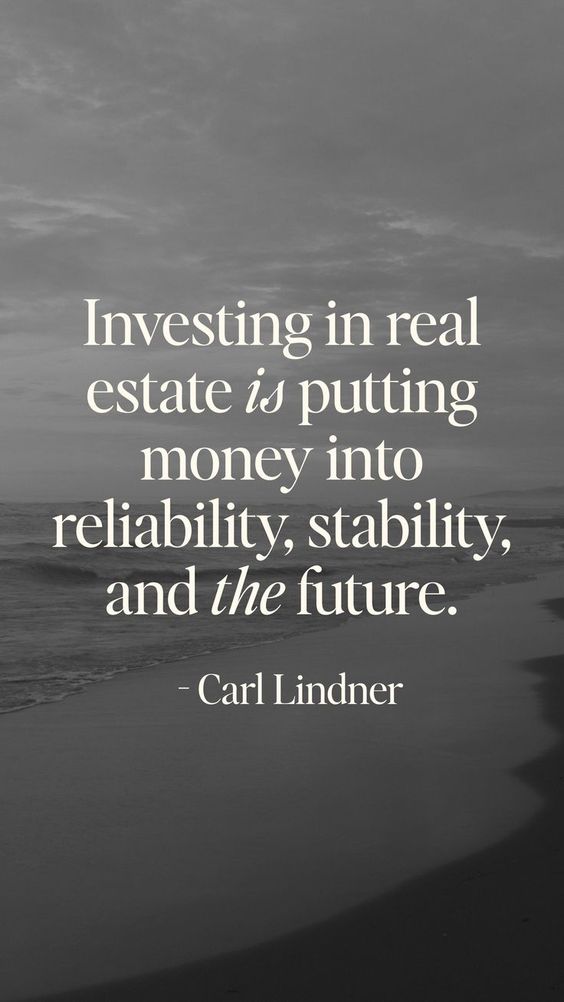Real estate is a huge… well, HUGE, investment industry with two-thirds of the world’s wealth stored up in it.
It’s literally a gold mine for willing investors who have got the drive to make it big in this business.
The best part about investing in real estate is that the industry is so fertile that even securing a ‘tiny’ percentage of its total worth can leave you big money.
That’s no joke…
Take the US real estate market, for example, just last year its value stood at a total of $33.6 TRILLION (equal to the US and China GDPs combined!)
Yeah, that’s right.
Now, imagine if you could claim your little share in those trillions of dollars. Hmm, see the point?
Safe to say, you would pretty comfortably spend the rest of your life living off it.
But, remember, success in real estate is not a walk in the park either.
It takes devotion, hard work and persistence to reach a point where you can begin to experience, what you call ‘financial freedom’ through your investments.
So, if you’ve got what it takes, this article is for you.
Read below SIXTEEN proven strategies that you can use to build your property business and become a real estate success.

1) Fix and Flip
A lot of newcomers in real estate jump at the idea of using the fix-and-flip strategy to succeed in real estate and make a quick buck in this business.
Alright, this is a relatively quick way of earning through real estate, but…
It still takes a good amount of energy and effort (and experience) to succeed in this strategy.
Basically, the flipping strategy involves:
Buying undervalued properties for low prices, then fixing them up and giving them a fresher look to sell them for top dollar.
That means a lot of work from hunting down the right properties to renovating them at reasonable costs and being able to sell them for enough profits to sustain you.
Plus: Short-term investment, and therefore easy financing options available.
Minus: It’s risky, since the sale may not go as planned and expected.
2) Wholesaling
This could be a great strategy for beginners in real estate investing because it puts no significant money of your own at stake.
Wholesaling in real estate means you act as a ‘middleman’ for properties on sale.
Your job is to find low-priced properties, get them under your contract and go find end buyers who can pay so much that the deal leaves you a difference as a profit.
Or… as your contract assignment fee.
What does the strategy require?
Strong negotiation and networking skills and in-depth knowledge of real estate.
Plus: You can venture into wholesaling even with bad credit.
Minus: It’s not a consistent monthly cash flow plan.

3) Short-Term Buy-Hold
A short-term buy-hold strategy involves buying a property (ideally low-priced) and holding it in your possession for 2 to 5 years.
In this period, you can do the repairs to push up its value, rent out and invest the income somewhere else.
But, that’s not all…
Since the goal is to make the most of your investment in the short run, you can do anything permitted by the law to milk as much cash as possible from your investment.
Eventually, selling your property for a sizeable profit would be your ultimate target with this strategy.
Plus: You can secure good profits with smart, cosmetic renovations.
Minus: High dependency on the market appreciation.
4) Long-Term Buy-Hold
A long-term buy-hold strategy is just the longer version of the previous strategy you saw - short-term buy-hold!
So, what happens in this one is that once you buy and hold a residential place for more than five years (long term) many doors to income-generating opportunities open up for you.
For example, with this strategy in the short term, you can pull off a decent income from the rentals…
Then after five years, there’s the tax shelter, value appreciation, loan amortization and much more for taking.
So, it’s a slow and steady approach, but definitely rewarding.
Plus: Constant rental cash flows for many years and potential for much greater appreciation.
Minus: If the market slumps in the long term, you are stuck.
5) House Hacking
That’s one great way for beginners in real estate to get the wheels of their venture turning and also gain some entrepreneurial confidence.
All you’d need is a home with some extra rentable space that you can let out to prospective tenants.
Needless to say, this line of real estate works best with a duplex, triplex, fourplex or a property that has a livable basement or garage.
So, while you’ll be living in your primary residence, the returns from its rented parts will cover your mortgage and you can possibly even make profits on it.
Plus: You live in the same house as your tenants and, so, can check on (and maintain) the rentals easily.
Minus: Your privacy may be invaded as you live in a shared living space.
Warning! Familiarize yourself with the state laws before you move along with this strategy because renting parts of your property may be banned outright in your state.

6) Live-In-Then-Rent
This real estate plan is slightly different from the house hacking option in that you convert your primary residence into a rental but move out to settle in another home yourself.
This strategy works perfectly for those investors who find it difficult to put together the necessary capital to own a rental.
The process is simple. You buy a house, live in it for a few years, prepare it for a rental, let out.
In this way, you can benefit from the appreciation in value and use refinancing to take out some equity and buy your primary home somewhere else.
Plus: Financing for a primary residence is easier than investments.
Minus: It’s a time-consuming method.
7) BRRRR
What’s BRRRR, right?
It stands for Buy, Renovate, Rent, Refinance and Repeat.
The method is basically the best way to succeed in real estate for those who have started out with a vision to make multiple properties from leveraging.
So, this is how it works:
You buy a low value, fixer-upper kind of property, touch up its interior and exterior look and rent it.
After a couple of months when you’ve collected enough rental money and built up sufficient equity on your house you can go for refinancing and take the cash out.
So that you can use that cash to repeat the process and re-invest in another property.
Plus: The learning curve that comes with this practice will help you decrease your costs and maximize your investment potential.
Minus: Creditworthiness is necessary to obtain financing for multiple properties.
8) Live-In Flip
This strategy is one of the many cousins of the ‘house flipping’ style, as its name tells.
A live-in flip is for those who are more inclined toward earning from selling rather than renting.
So, you buy a comparatively underpriced property that needs some updating and improvement.
You snap it up, move in and live in it for 2 to 5 years, during which time you’ll do the repairs needed to upgrade the house…
After at least two years you’ll be able to sell the property - and, hopefully for an appreciated price.
Interestingly, with this strategy the law allows you to pay NO tax on the first $250,000 you make in profits (for single filers) and $500,000 for married couples filing together.
Obviously, the tax exemption is one big reason many investors consider taking this route.
Plus: Easy financing options are available since you’ll be residing in the house yourself.
Minus: You’ll have to sell up in 2–5 years and achieving a profitable sale is not guaranteed.

9) Trade-Up
The trade-up is really a cool way not to lose your money to taxation and keep reinvesting in properties.
Actually, this strategy exploits a tax-free exchange scheme from the IRS, known in the legal language as a 1031 exchange.
Using this scheme an investor can defer capital gains tax on the sale of a property by investing the profit from the sale into another property of the same category.
So, you can level up your assets’ portfolio without the gain-on-disposal taxes impeding your growth.
Plus: You can buy more freely since you’ll be avoiding the capital gains tax.
Minus: Strict laws and ordinances to follow.
10) Hard Money Lending
OK, now, this is a bit different than investing directly for success in real estate.
This strategy lets you lend money to investors in the real estate market for a short term period and charge high interest on your loans.
You can hand out as much loan as you can afford and take interest installments on the principal amount.
Also, there’s some loan fee involved which you’ll bag in advance.
Overall, it’s a safe and easy way to make money through real estate without getting your hand dirty in the usual day-to-day property management chores.
Plus: You can choose the investors you want to lend to and how much money you extend them.
Minus: You’ll need to make sure you’re protected if there’s a foreclosure.
11) Turnkey Properties
Not a very common strategy though, this is an easy way out for those real estate players who want to buy properties ready for a rental as soon as they close on the deal.
So, when the property transfers in their name the investor has to do nothing except start receiving rental returns.
Sometimes, a turnkey property may already have an ongoing rental lease with renters living…
This can be a win-win situation for you since you wouldn’t even have to market your rental space to attract renters and you’ll become a landlord the moment you buy the property.
Plus: If you outsource your rental unit’s maintenance to a property management company this can be a completely passive investment to succeed in real estate.
Minus: The tenants are already there, and not of your choice.

12) Airbnb
Did you know?
Airbnb hosts make an average of $900 per month and sometimes much more than that!
The investor of yesteryear didn’t have opportunities like Airbnb to generate income from investment real estate…
But, today, beginners in the housing business can make easy bucks from such online marketplaces.
So, Airbnb is an online platform that allows you to let your home to tenants for short term occupation.
A big advantage of using Airbnb is that you can higher than market rent depending on the services you offer, for example, a premium charge.
On top of that, you can choose when and when not would you like to put up your home for rent.
Plus: It’s a quick process that gets you reliable, high-paying short-term tenants.
Minus: Not a proper investment plan that can bring in continuous rental earnings for you in the long term.
13) Crowdfunding
Crowdfunding is an investing strategy that lets you put in your money in a real estate property (or multiple properties) alongside a group of other investors.
So, the ‘crowd’ pools the money for an investment and everyone gets their fair share in profits.
Crowdfunding is considered a passive investment strategy with very little work on your part unless you’re an active member.
Moreover, this strategy is legit suited to an investor with a humble background.
Because many crowdfunding schemes allow you to participate with just as little as $1000 from your pocket.
However, the dividends are, obviously, nowhere close to, say, rental income from private property.
But, this CAN be a good start…
Plus: It can help you acquire good knowledge of real estate.
Minus: It requires you to be creditworthy.

14) Vacation Rentals
The travel and tourism industry is, no doubt, a kicking section of the global economy.
It’s huge with tremendous wealth opportunities for success in real estate.
Just last year, in the face of all the terrible Covid19 restrictions, the industry was estimated at 4.7 trillion dollars globally.
Seeing the potential, a blend of the two giants (tourism and real estate) can be a rewarding start for you.
The blend being “vacation houses”.
With this type of real estate strategy, you can really make a lot of money by investing in the right locations that have a decent tourist pull.
However, if you’re not really fascinated by tourism and travel in general this may not be your thing.
Because this strategy requires deep knowledge of the subject, plus expert skills in customer care, hospitality and communication.
Plus: It can prove a lucrative business in the long term.
Minus: Strict legal codes and regulations to follow.
15) Real Estate Investing Trusts (REITs)
Did you know? REITs are required by law to give out 90% of their profits to shareholders as dividends.
Real Estate Investing Trusts are a feasible option for those investors who want to invest in real estate without engaging in the property affairs themselves.
REITs are companies or trusts that sell shares on the market for ownership in their real estate business.
Their portfolio may have a variety of real assets like offices, apartments, residential units, etc.
Just like any stock firm, REITs come as both public and private.
And, understandably, the public type is safer because they’re subject to pretty stringent rules.
So, REITs can help you diversify your assets and expand into real estate with only little fear of losing.
Plus: A completely hands-off investment, with constant cash inflows.
Minus: An REIT may skip a dividend payment if they’re not making adequate profits.

16) Run an Old Age Home
Running an old age home or - as many call it, a retirement home - is quite paying a strategy from the real estate investment point of view.
A recent survey showed that about 1.4 million of the US senior citizens currently live in nursing homes.
And, the number is only going to shoot considering the high costs of living and the broken family trend on the rise.
People are becoming introverted more and more, joint family living is becoming a thing of the past and all this means there is going to be an increasing demand for care homes.
So, this strategy will definitely pay.
But, there’s a LOT of homework to do on the investor’s part.
The state imposes strict regulations on nursing homeowners because little negligence can mean the difference between life and death.
Also, you’ll need to hire nursing staff that can deal with old people, their medications, mobility and diet.
If you can carry it off, you go for it!
Plus: High-paying investment, with hot demand in the near future.
Minus: A lot of bureaucratic red tape, getting through which is not easy.
The Bottom Line – Success In Real Estate
So, you have successfully read through the 16 amazing strategies for success in real estate that can (and will) surely pay you back manifold.
Provided that, they are done the right way!
But, the million-dollar question that now comes to mind is:
How to choose the best strategy for you?
Well, that’s something only you can answer BEST.
All the real estate strategies you can take as a beginner have been laid out before you in detail.
Now, what you can do is analyze each strategy with the eye of an eagle and decide for yourself.
But, do take a real estate professional on board when doing your calculations.
Listen to their advice and let them take you by the hand lest you get caught in some analysis paralysis.
Once decided, take the plunge. Go for your chosen strategy with confidence and stick to it like a man.
With perseverance and passion, your dream of becoming a real estate success WILL come true!






